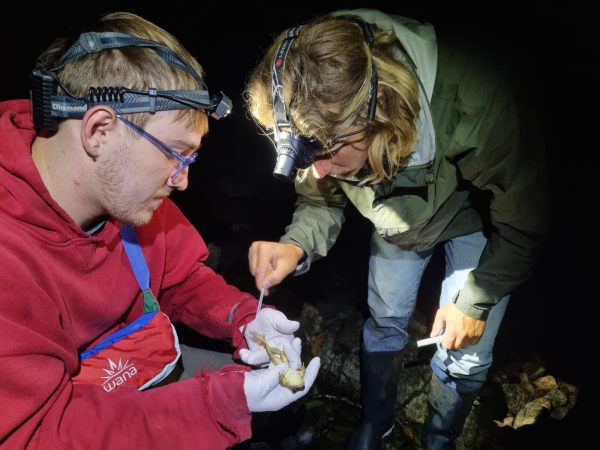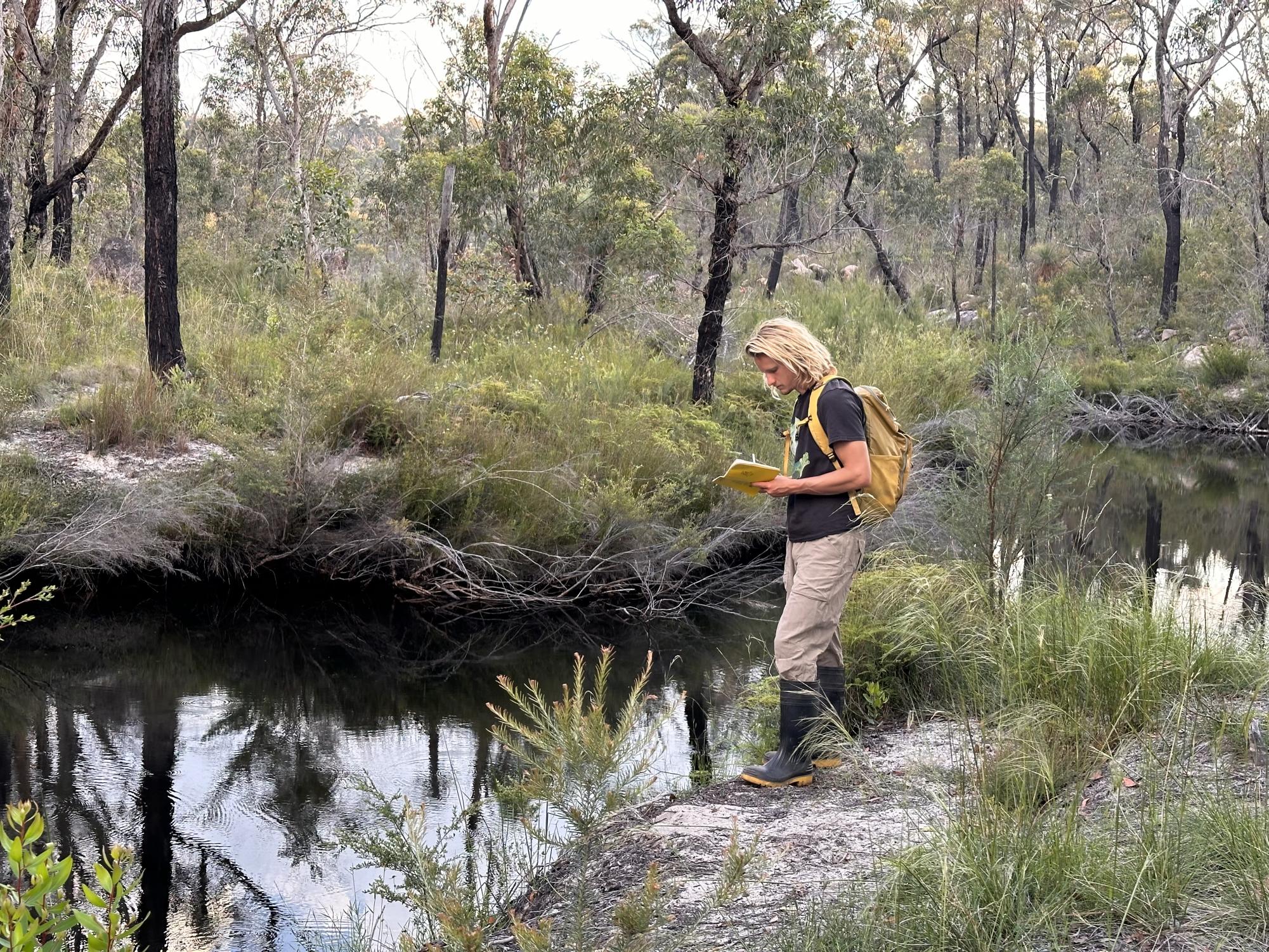Even halfway across the globe, one Wildcat manages to keep tabs on the legacy he left at his alma mater. Studying for his Ph.D. in Sydney, Australia, Fulbright Scholar Elijah Bieri still keeps an eye on Marquette’s salamander migration and the ongoing study on it he started six years ago.
Bieri said the most recent news he heard about the migration was the funding for the ‘salamander tunnels.’
“That was sort of the original idea we had. We thought it would be cool to put in little salamander tunnels,” Bieri said. “It seems like they are a sort of longtime goal, because it makes everyone happy. You don’t have to close down the road and the salamanders get to where they need to go.”
Looking back on how he first got involved with the little amphibians, Bieri said he was told by a graduate student that they saw salamanders crossing the road at night and he had to get a look for himself.
“I went out on a few rainy nights and ended up … seeing hundreds and hundreds of salamanders crossing the road, at the same time it was really spectacular. Then as the night went on, just more and more cars were passing through and I was noticing truly dozens and dozens of dead bodies,” Bieri said.
Bieri conducted a study in his freshman year in which he found that 400+ salamanders had died – over 10% of the breeding population. With that many being killed, the study showed long-term declines in the salamander population. Due to those finds, the first road closure took place in Bieri’s sophomore year.
“I took that to Jill [Leonard, head of NMU’s Biology Department] and asked if there [were] any grounds to maybe put a proposal to the city to close the road,” Bieri explained. “She was like, ‘It’s a really a good opportunity to do a study and if you can come up with the numbers to convince the city, that it would be a good idea to do the road closure.'”
Bieri gave credit to how active the biology department was in supporting his study, in addition to the city of Marquette and the people for protecting its natural resources and native animals.
“Jill really took me under her wing and guided me through it, which was awesome,” Bieri said. “From talking to Jill, she said they might be taking on a grad student next year [who] is potentially going to study the salamanders.”
From growing up in Grand Rapids, to being drawn to the land of the U.P. to study at NMU and then traveling to Sydney, Australia to study how frogs react to natural disasters, Bieri appreciates his work. However, a part of him still looks back with fondness.
“I miss the U.P., especially this time of year, when the salamanders start moving,” he said.

Bieri conducted an impactful study in his undergraduate years, one that awards conservationists with thousands of dollars in grant money to keep up with, and one that brings nearly 100 students to gather research for and potentially brings in experts. After all this, he awards this accomplishment to NMU and how it shaped his scholarly career.
“My time at Northern really prepared me for the research world,” Bieri said. “I got to really see research happen [at] every step, start to finish, from just having an idea, to designing a study, to carrying it out, writing up my results and then doing what ultimately every researcher hopes happens with their research, and that’s sort of implementing some change. It was cool seeing that go full circle there, and I have carried that with me.”
Bieri keeps up a blog for anyone looking to keep up with his work, titled, “Frogging and Blogging: Amphibious Musings.”
“If I could emphasize anything, it would be how incredible it has been, even from afar, to watch the Marquette community rally around these little salamanders,” Bieri said.







